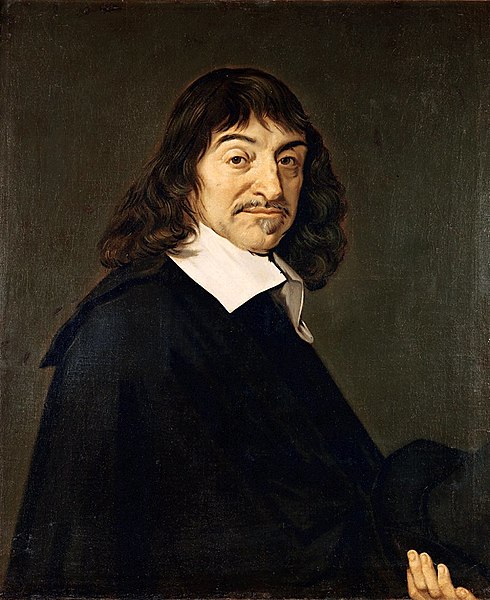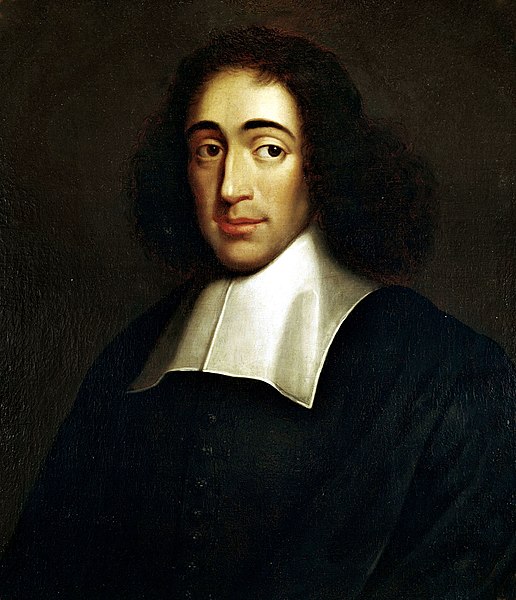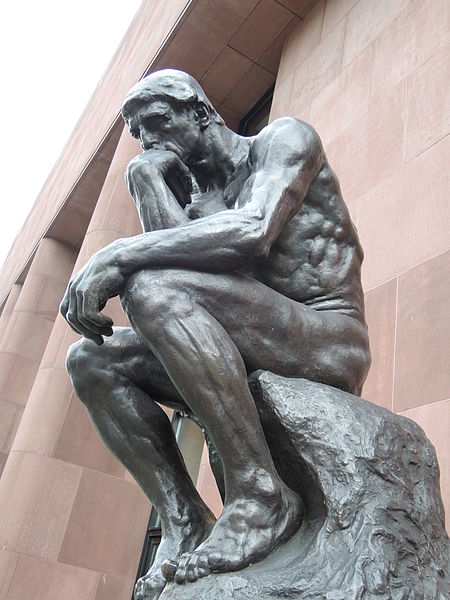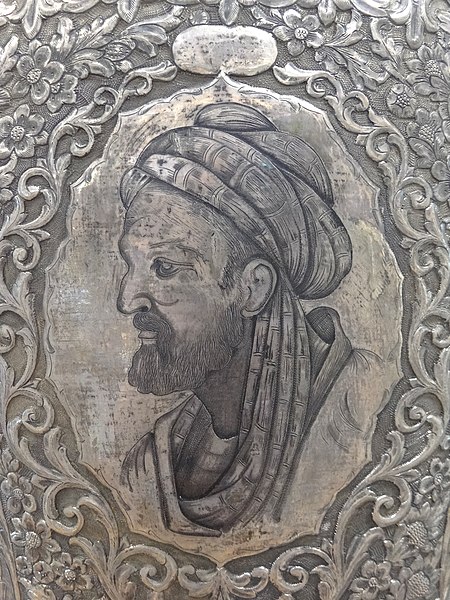In philosophy, rationalism is the epistemological view that "regards reason as the chief source and test of knowledge" or "any view appealing to reason as a source of knowledge or justification", often in contrast to other possible sources of knowledge such as faith, tradition, or sensory experience. More formally, rationalism is defined as a methodology or a theory "in which the criterion of truth is not sensory but intellectual and deductive".
René Descartes
Baruch Spinoza
Gottfried Leibniz
Detail of Pythagoras with a tablet of ratios, numbers sacred to the Pythagoreans, from The School of Athens by Raphael. Vatican Palace, Vatican City
Philosophy is a systematic study of general and fundamental questions concerning topics like existence, reason, knowledge, value, mind, and language. It is a rational and critical inquiry that reflects on its own methods and assumptions.
The statue The Thinker by Auguste Rodin is a symbol of philosophical thought.
Physics was originally part of philosophy, like Isaac Newton's observation of how gravity affects falling apples.
Aristotle was a major figure in ancient philosophy and developed a comprehensive system of thought including metaphysics, logic, ethics, politics, and natural science.
Portrait of Avicenna on a silver vase. He was one of the most influential philosophers of the Islamic Golden Age.








